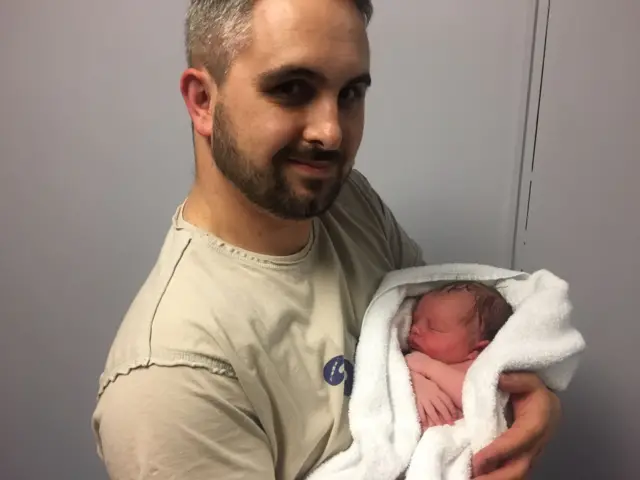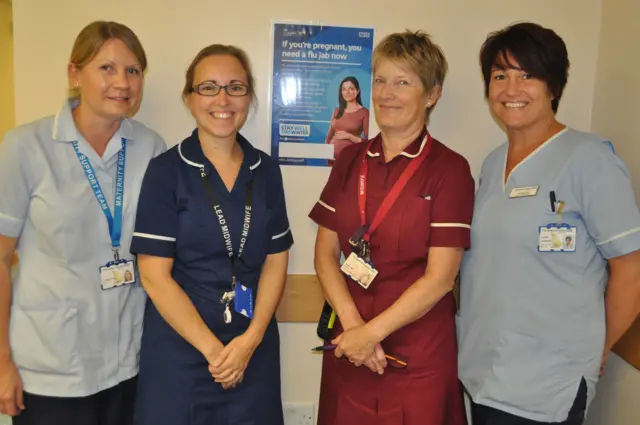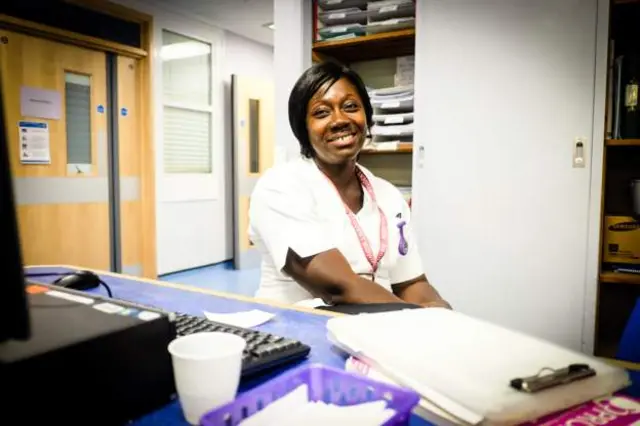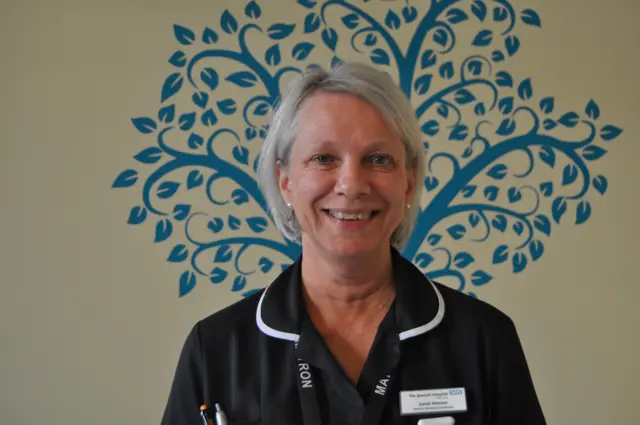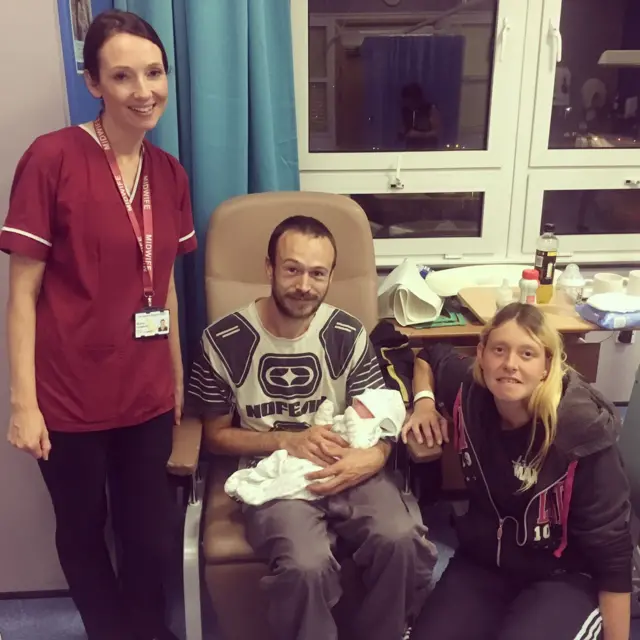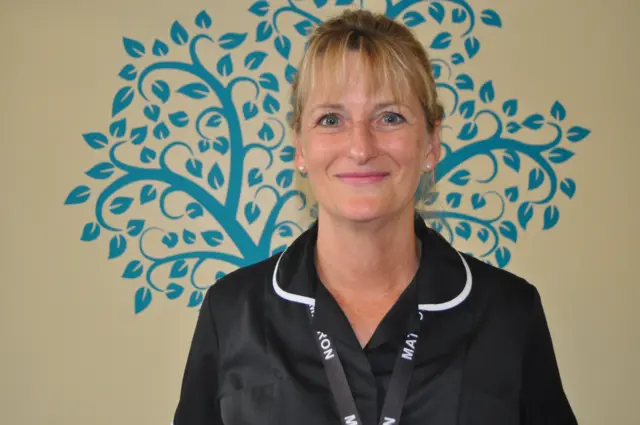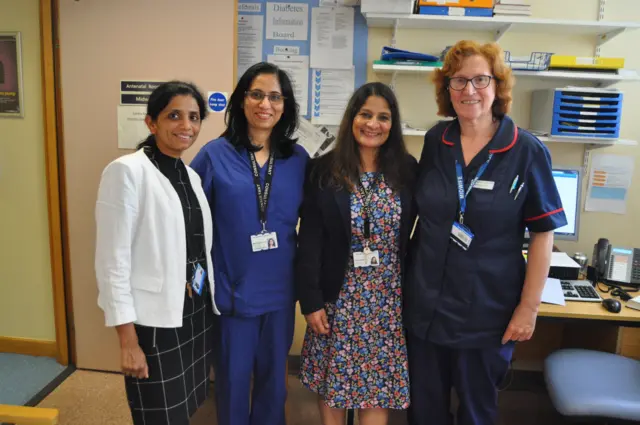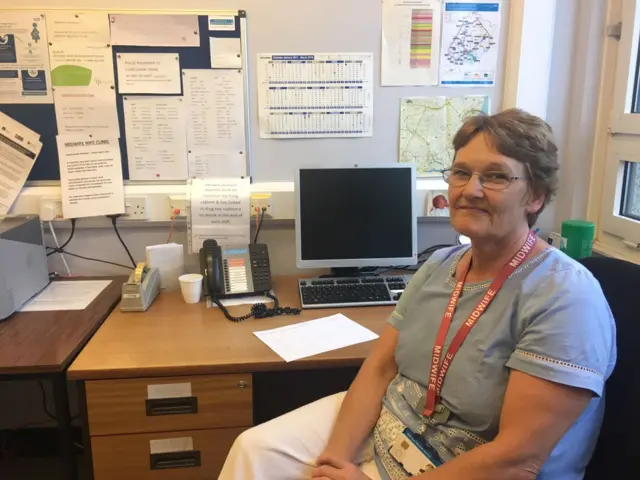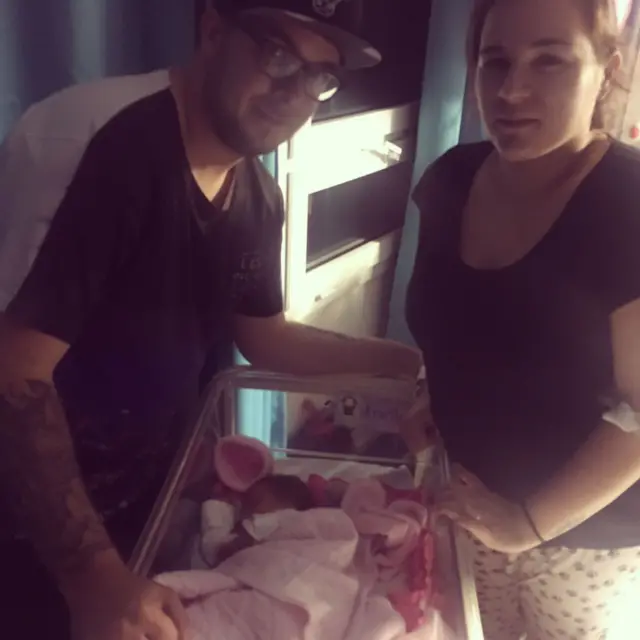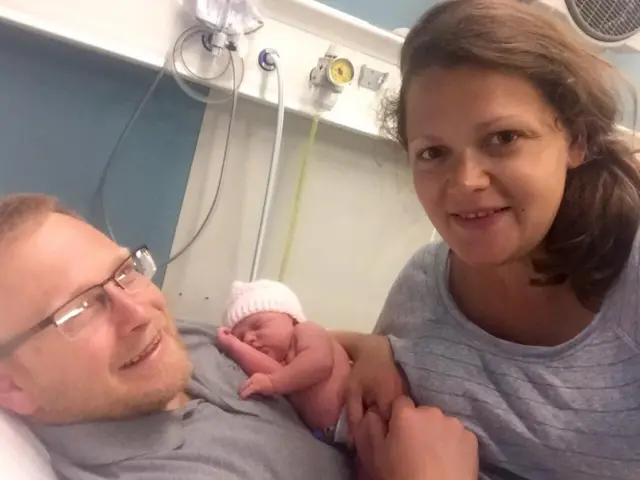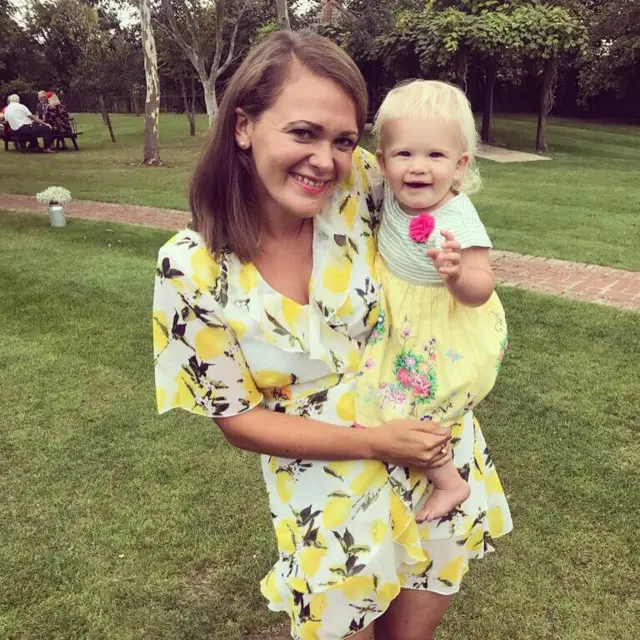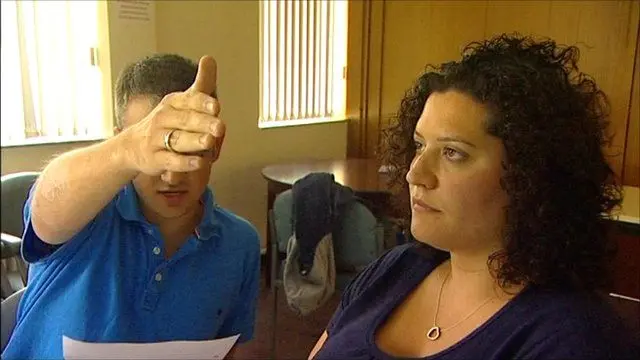It's goodnight from us!published at 00:00 BST 28 September 2017
What a day! We've had 10 births, including three planned C-sections, since we started our live coverage here at Ipswich Hospital exactly 24 hours ago.
And who could forget the incredible moment we watched baby Logan being born?
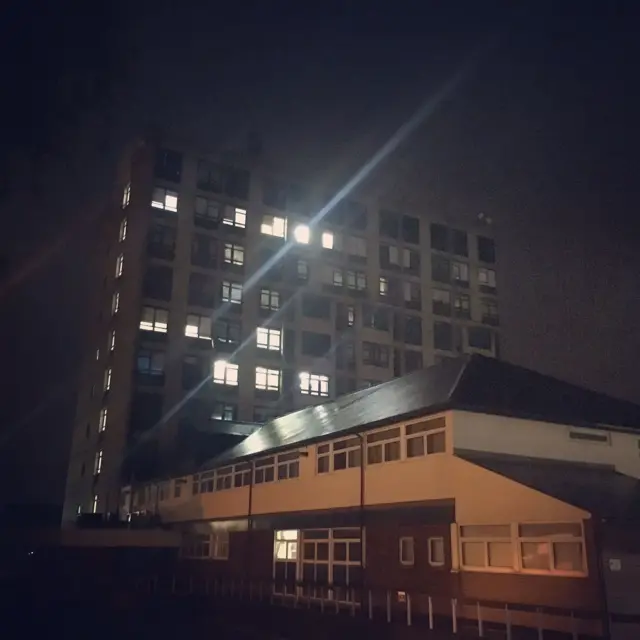
We hope you've enjoyed it as much as we have.
We're off to get some sleep now, but the midwives here will be working well into the night to deliver even more babies.
So it's goodnight from us, hope you have a peaceful one.

